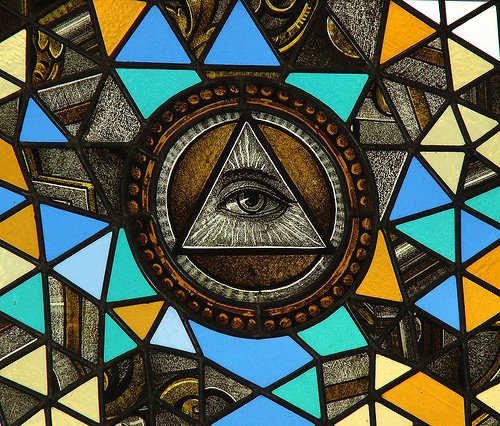Cinemania has my review of Profane. It's.... interesting.
If that sounds like backing-away-slowly "interesting", that's kind of a shame. I thought Profane was a good movie, I just hesitate to recommend an explicit BDSM picture with long unfocused psychedelic sections unreservedly, because it's either going to be your thing or emphatically not your thing.
It's hard to explain why I think this movie is good without potentially spoiling some stuff, so if you're desperate to hunt down a copy of Profane and hit it full-force with the Beginner's Mind (which is what I did, albeit inadvertently) you might want to stop reading and go organise that. If you want a pre-taste of what's about to hit you, but not to have things spoiled, here's Usama Alhaibi's Vimeo feed (the link is safe, but at least some of the videos are not even slightly Safe For Work - you have been warned).
Now read on...
I read a book of interviews with Tom Waits a while back, where he talked a lot about "the hair in the gate". Back in the days of reel-to-reel film, it was possible for pieces of grit or hair to get stuck in the gate that the film passed through. When that happened, the audience would see it superimposed over the picture, jumping about as the fast-moving film agitated it on the way past. Waits says that he enjoys the hair in the gate (a sonic equivalent would be someone else's music heard through a wall or in a crowded noisy market) because it forces audiences to make up their own minds about what's happening behind the distortion*.
Profane is very like that. One of the functions of the psychedelic segments and extended BDSM scenes is to confront you with "noise" that can't be processed logically and forces you to try and reconcile what you're seeing now with the information that was revealed in the more "documentary" scenes. As a result, it's hard to say what definitively what happens in the course of the film.
It's possible that Muna undergoes a spiritual death and resurrection in line with the Hero's Journey, and reconciles her cultural Muslim upbringing with her current life in a new sort of mystical spiritual synthesis. It's an equally valid interpretation of the events as presented to say that she fails to reconcile with Islam and becomes an atheist, or to say that the movie is an account of her total spiritual destruction and that by the end she has been entirely consumed and/or possessed by the Djinn. I know which of those I believe, but I'm fairly sure that someone with a different psychic makeup would draw an entirely different conclusion.
The other function of the psychedelic scenes is to mirror Muna's state of mind. This isn't new - lots of films have attempted to convey the experience of taking mind-altering drugs - but Profane is the first movie I've seen to attempt to show drug effects relative to one another, from a subjective point of view. Muna drinks and smokes pot as well as snorting coke and assorted crushed-up pharmaceuticals, and each drug changes the film in noticeable and highly characteristic ways. It's a really interesting device to try and get you into a character's head (as well as making a subtle point about allowable and banned forms of perception) and I thought it was really effective.
What Usama Alshaibi has done with Profane is a sort of Magical cinema. The closest cousins I can think of would be David Lynch or Alejandro Jodorowsky (I've also seen him compared to Kenneth Anger, but I haven't seen any of Anger's films so I can't really comment on that). Both Jodorowsky and Lynch rely on symbolism to carry a lot of the weight of their films, and construct them with a specific psychological impact in mind for the audience.
The Magical element of this is that, because the nature of the symbols is not explicitly decoded, the viewer's subconscious does a lot of the processing in line with their own perceptual reality filters. The full effect of the film is then felt over the course of the next few weeks or months as it slowly unpacks its baggage into the conscious mind. Because the decoding filters aren't "up" and screening the information as it comes in, charge** isn't lost or diffused and it's actually possible for the film to change you (albeit subtly) in ways a more straightforward narrative can't.
I am not the same person I was before I watched Profane - not much different, but certainly not the same.
* This could also be understood as forcibly opening up a gap between perception and reality (or "reality" as relates to the medium in question) as discussed here.
**I try hard to avoid New Age-yness, or "Magickal" language here, because my point is that Magic is a way of explaining a set of processes (for example "negative energy" is a metaphor, not a measurable physical phenomenon) that can be explained in other ways, but (I believe) less effectively. However, I can't think of a better word here. "Charge" in this context would probably be best described as the sense of emotional realness and immediacy in an idea - the difference between reading about something and experiencing it, for example.

No comments:
Post a Comment